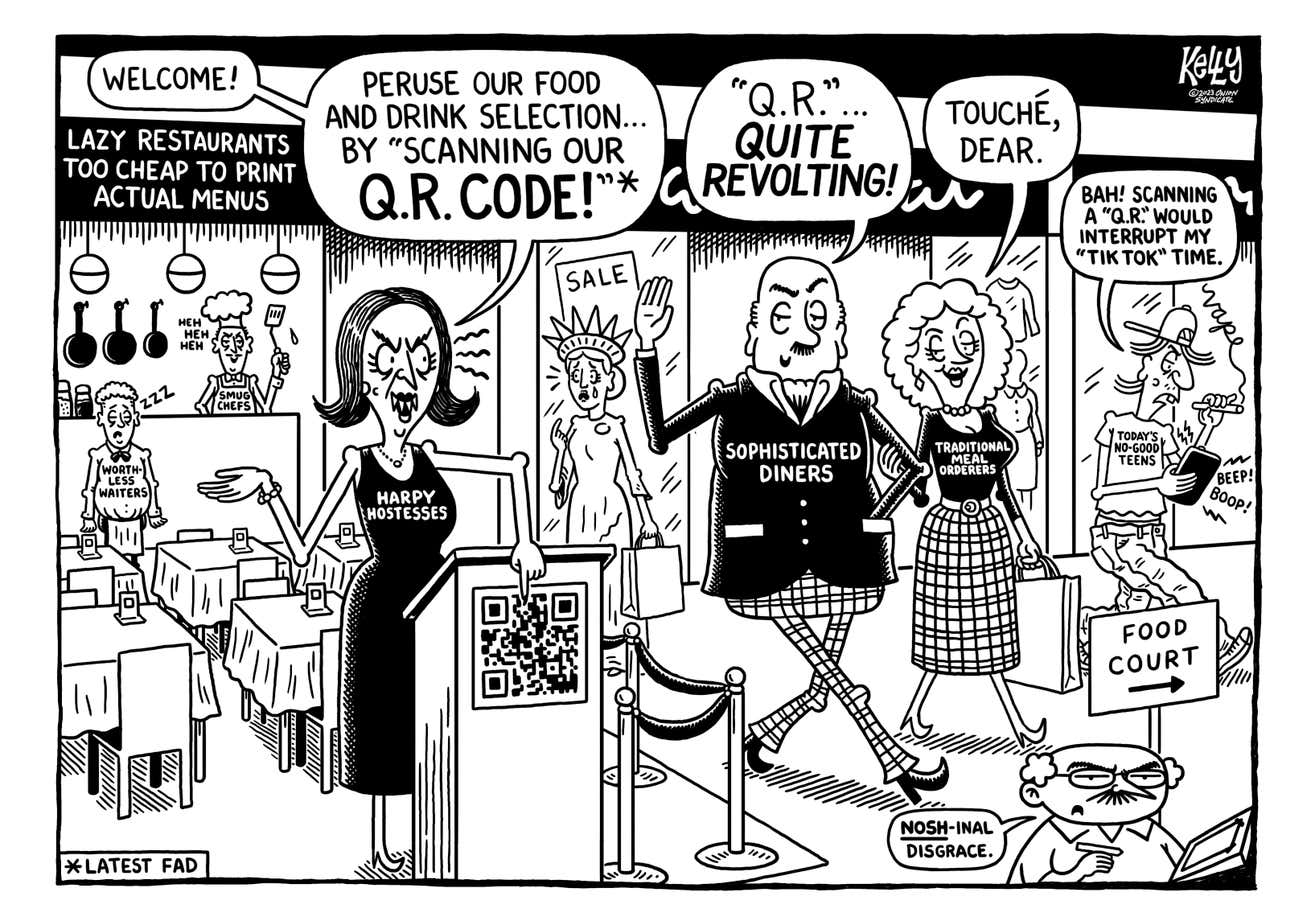this post was submitted on 17 Jan 2024
329 points (92.5% liked)
The Onion
4588 readers
586 users here now
The Onion
A place to share and discuss stories from The Onion, Clickhole, and other satire.
Great Satire Writing:
founded 3 years ago
MODERATORS
you are viewing a single comment's thread
view the rest of the comments
view the rest of the comments

If you're using these links as restaurant menus as opposed to ordering platforms (this is how I use them, and how this post & other commenters seem to be presenting the concept) that's kind of limited to a risk of straight up being phished in a situation where you don't really have any reason to hand over your information.
In a pub/bar setting it's helpful to know what's available at the bar before I'm standing at it, especially if I'm buying a round. That is to say it generally lowers the bar to menu availability, not raise it. Because before the pub/bar would simply have no table menu and you'd figure out what you wanted by asking or looking at the taps
There are clickless exploits and other methods that don't require you to enter information, nevermind that nearly all of these menus have ordering and payment available through them and mimicking websites is fairly simple.
QR codes cannot be trusted just like links from unknown sources cannot be trusted.
I think you'll find there isn't an Android or iPhone on the market today vulnerable to SQL injection or XSS etc via scanning a QR code. You're talking about device vulnerabilities that get patched and it's equally possible to encounter these exploits with plaintext URLs
Patching out zero days takes time.
Yes which is why I clearly stated that following URLs from any unknown sources carries risk.
The difference is that due to menus being a point of payment they have a greater incentive for abuse.
So we shouldn't use smartphone features if they could potentially have exploits? With this logic you shouldn't have a phone.
no but QR is a shit bug/exploit riddled mess of a format
We shouldn't replace perfectly good solutions with unreliable, cumbersome, insecure, annoying shitty tech just because.
Thinking that simply visiting a web site for a business you've already decided to patronize is dangerous is some serious boomer logic.
If we only focus on the security part, how the do you know it's even their site you're visiting? Often those qr codes are just stickers on table, trivial to slap a new one there
But it also adds a lot of annoyance for customers who came to eat food, not doomscroll on their fucking mobile phone
My whole point is that the perfectly good extant solutions are equally flawed. QR codes don't create a situation where e.g mimicing a website is easier. It is already easy. It is not any more difficult to mimic a website with a fake domain name purposefully named in plaintext in a way to deceive.
Literally the only difference is you are looking at letters, which you are confident in your ability to parse, with a code which you are not. A URL being short and easy to type doesn't make it less likely to be malicious.
The key thing to remember is that yours, my, everyone's assessment of perceived risk is very incomplete. Your specific comfort with plaintext is itself a potential attack vector. So an approach to privacy/security where you simply avoid all possible circumstances with any perceived risk attached to them is a shitty approach. Engaging with an acceptable risk level is the only way to teach yourself vigilance.
People recently started seeing QR codes everywhere and feel confronted by this new reality, that's natural. But the truth is that this is fear of QR codes is irrational where it is not reconciled with the perceived risk of generally using the internet and following links. There might be a difference in the physical characteristics of the link format, but in terms of computer security the difference doesn't matter.
Just because some commenters here remember seeing a CVE in 2016, or read about QRgen one time, doesn't mean QR code protocol is inherently vulnerable. It is in fact quite ridiculous to suggest that would be the case and all the manufacturers would continue to support it.
If the restaurant doesn't have a good enough reputation that I couldn't trust the QR they provided (which displays the URL so I can inspect it before launching the web browser), I also wouldn't want to trust my health to eating there.
It isn't like some random thing you found on the sidewalk.
I'm pretty sure these are just an echo of the same concerns people put forward when URLs first started being included in signage, due to general privacy/security concerns with the internet. Somehow we got through it!